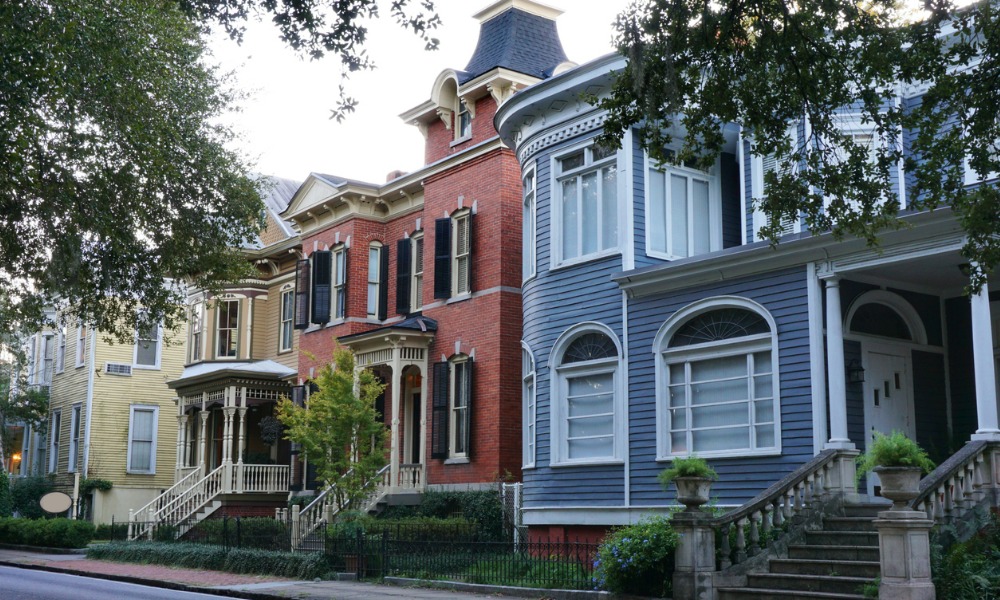As housing stock ages, alliance seeks rehabilitation

Kiavi, a provider of financing to real estate investors, has forged a strategic alliance with Corporate Community Connections Inc. toward the goal of offering financing for minority real estate investors keen on revitalizing aging homes across the US, officials said.
Mortgage Professional America reached out to Kiavi CEO Michael Bourque for more details. “The collaboration between CCCI and Kiavi will provide access to tools and financing to minority real estate investors,” he said. “It will empower individuals with knowledge and provide access to timely capital unlocking the potential to build generational wealth and gain financial freedom. Through education and resources individuals will be able to build their real estate investment portfolio.”
The move comes amid a national housing shortage in the US. Despite a record low supply of homes, sales of previously owned homes in January – single-family homes, townhouses, condominiums and co-ops included in the mix – rose 6.7% from December to a seasonally adjusted annualized rate of 6.5 million units, according to the National Association of Realtors.
As for the supply of homes, it fell to a record low – down 16.5% from one year ago – the association reported. Total housing inventory at the end of January amounted to 860,000 units, down 2.3% from December, the group reported. Unsold inventory sits at a 1.6-month supply at the current sales pace, according to the analysis, down from 1.7 months in December and from 1.9 months in January 2021.
Read more: Existing-homes sales surge ahead of Fed rate hike
Such tight supply, coupled with strong demand, pushed the median price of a home sold in January to $350,000 – a jump of 15.4% from last January, the National Association of Realtors reported.
Amid such dwindling supply, Kiavi noted that two-thirds of homes are sitting at over 30 years old. Through its technology-powered platform, the company believes that “…we can come together as a nation to solve this challenge by revitalizing them and delivering move-in ready homes to America’s families.”
Bourque expounded on the idea: “With our relationship with CCCI, we will bring this opportunity to underrepresented communities who have local knowledge of their communities and have a chance to make a bigger impact by investing and rehabilitating neighborhoods they are intimately familiar with,” he said.
The company hopes to reach investors working to revitalize African American communities in particular, Bourque noted. “Our relationship with CCCI will help us reach the African American community,” he said. “We are excited about working together and look forward to creating positive change across the country.”
Read next: New home sales: “Modestly weaker than expected”
To further convey the ambitious goal of the alliance, Bourque will join his CCCI counterpart DeForest B. Soaries Jr. in what’s dubbed as a fireside chat on Feb. 28 at 9 a.m. PST.
Lawrence Yun, chief economist at the National Association of Realtors, explained how market forces have yielded the current state of affairs in the housing market: “Buyers were likely anticipating further rate increases and locking-in at the low rates, and investors added to overall demand with all-cash offers,” he said in a prepared statement. “Consequently, housing prices continue to move solidly higher.”
The upshot: “The inventory of homes on the market remains woefully depleted, and in fact is currently at an all-time low,” Yun said. What’s more, homes priced at $500,000 and below are all but disappearing as supply has risen at the higher price range, Yun noted. Such increases will continue to shift the mix of buyers toward high-income consumers, the economist added.
“There are more listings at the upper end – homes priced above $500,000 – compared to a year ago, which should lead to less hurried decisions by some buyers,” Yun said. “Clearly, more supply is needed at the lower-end of the market in order to achieve more equitable distribution of housing wealth.”
Yun added that forthcoming increases in mortgage rates will be problematic for at least two market segments: “First, some moderate-income buyers who barely qualified for a mortgage when interest rates were lower will now be unable to afford a mortgage,” he said. “Second, consumers in expensive markets, such as California and the New York City metro area, will feel the sting of nearly an additional $500 to $1,000 in monthly payments due to rising rates.”



